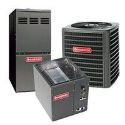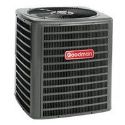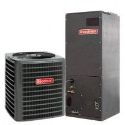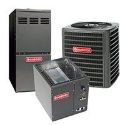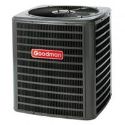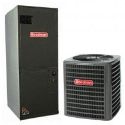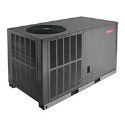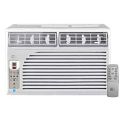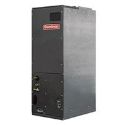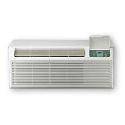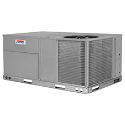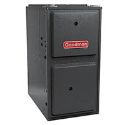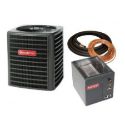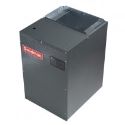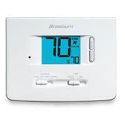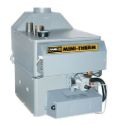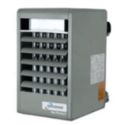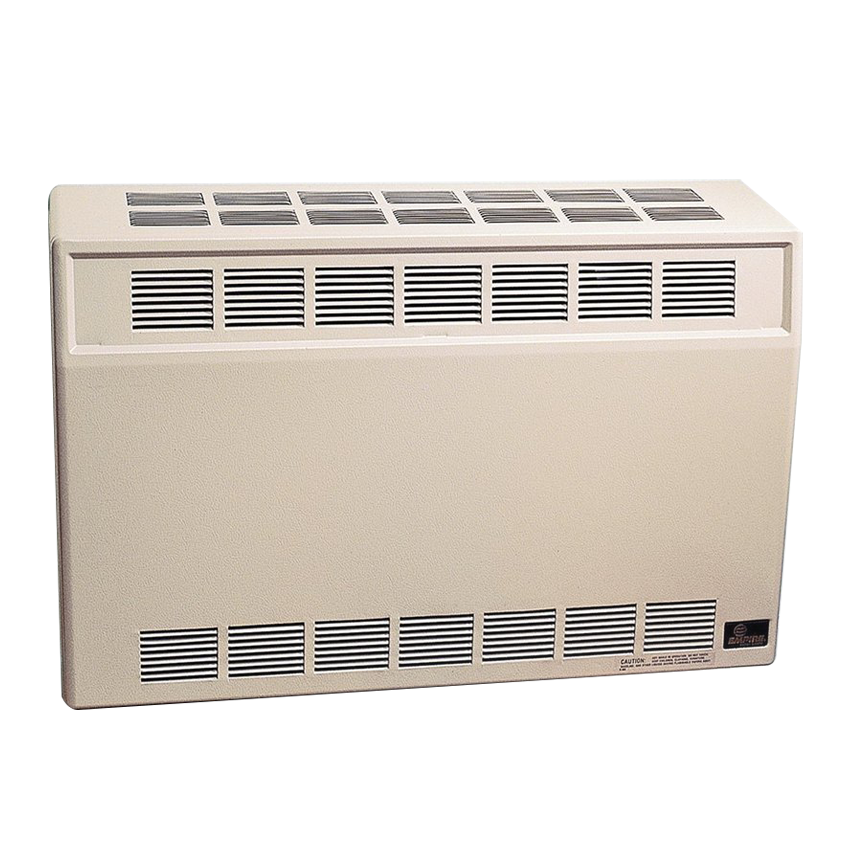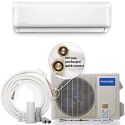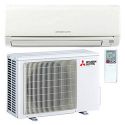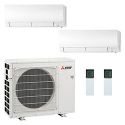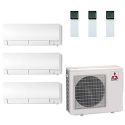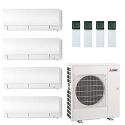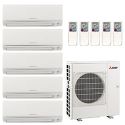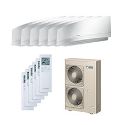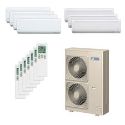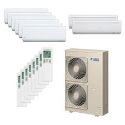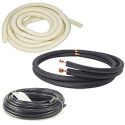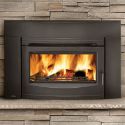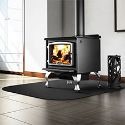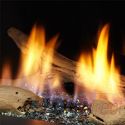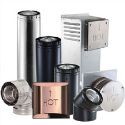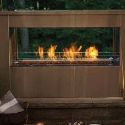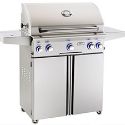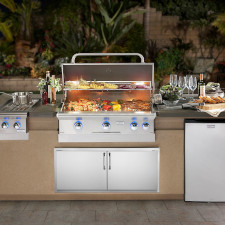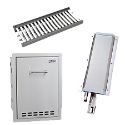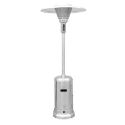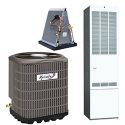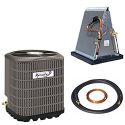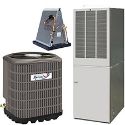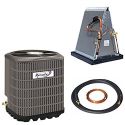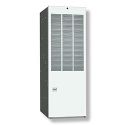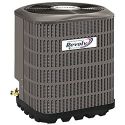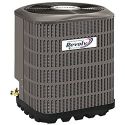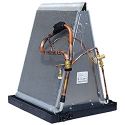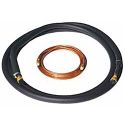There’s a lot to consider when updating your mobile home furnace system. To get started in understanding how to approach the buying process, our experts have put together this guide of questions and considerations. Write down the answers as you go and at the end you’ll have your list for what you need.
What do you have now?
Starting with your current system will allow you to have a baseline understanding of how your home is heated today. Even if you want to change or improve your heating, knowing what you’re currently using will help with targeting your search for a new system:
- What’s your fuel source? (Electric, natural gas, propane, oil?)
- Do you have Central Cooling or Heat only?
- What are the tonnage and BTU requirements for your house?
- How well did your current system preform keeping your home comfortable?
It’s recommended to get two sources of info on tonnage and BTU requirements so that you can double-check them to ensure accuracy:
- Check the specs on your current unit. You can lookup the model # online to see the tonnage and BTU specs, and on many units it is printed right on the plate.
- Use an online sizing guide to double-check your home’s requirements. You can easily find out what kind of unit you need by visiting our sizing guide here.
The hope is that the sizing guide info and the specs on your current unit match. If they don’t, we recommend you talk to a professional: either a local installer or a representative at an equipment dealer, like HVACDirect.com
Are you changing to a new type of system?
After you’ve determined what you have today, you’ll need to determine what you want:
- Are you happy with what you have now?
- Or do you want to change from heat-only and add central cooling?
If you are going to keep the same as you have now, then your hunt is easy … plug in the specs and go shopping for a new system!

If you’re not sure yet what you want, here are some questions and notes on the different kinds of systems available:
- Do you want heat only or do you want central air?
It’s important to think hard about this one, as we always recommend putting in central air and heating together – you'll save on the installation and equipment by doing it all at once.
If you want air conditioning as well as heating, take a look at both heat pumps and traditional AC/furnace systems.
Heat Pumps Systems: Contrary to their names, heat pumps provide cool air in the summer by moving hot air out of the house to the outside. In the winter they do the opposite, moving warm air into the home. They are extremely energy-efficient compared to traditional air conditioning condensers, but require a backup heating source where outdoor temperatures drop below 35 degrees. This can be electric heat strips, gas, propane, or oil heat.
Furnace and Air Conditioning Systems: These systems provide heating and cooling via the traditional combination of a furnace, coil, and condenser. They are the most common in the Northern half of the US since the gas furnaces are able to efficiently keep homes warm and comfortable in the cold winter months.
- Do you have room for a split system?
Mobile home HVAC systems can come as either a packaged unit or a split system. Packaged units contain all the heating and cooling elements in one large unit that can either sit on the ground outside or on the roof.
A split system means that the heat pump or AC condenser sits outside while the furnace and air handler are inside.
Packaged units are easier to install than split systems, but if you have the room, we do recommend a split system since it is more energy-efficient.
- Does your home have duct work or is it ductless?
Most mobile and manufactured houses have full duct work that allow for both heating and cooling. There are, however, some newer and higher-end models available that do not have duct work. For these models, you’ll want to consider a mini-split system. Able to handle both heat and air, ductless mini-splits do come with a bit of a higher initial price tag, but they are so energy-efficient that you’ll easily make up the costs and really save on your energy bills.
If your home is ducted, you can select any of the “traditional” mobile home heating and cooling units mentioned above.
Don’t Forget: Easy mistakes and the most-forgotten factors in mobile home HVAC shopping:
When we asked our techs what things most homeowners overlook when shopping for a mobile home heating or cooling system, their answers came quick:
- Ensure the components you’re buying are made for mobile or manufactured homes.
Venting and duct work for mobile homes is different than that of a regular home. The duct work is narrower and smaller so the blower fans are very different. Ensure everything you’re purchasing is made for your home.
- If you have a gas furnace, don’t forget the roof jack.
Roof jacks are used to cover and extend the venting outside of the house through the roof for gas furnaces because space is just too tight inside to give the furnace proper clearance for necessary ventilation. When measuring what you need, don’t forget what you need inside the house (from the top of the furnace), plus what you need to extend beyond the roof. Also take into consideration the pitch of your roof.
- If you have Central AC, make sure you have a coil cabinet.
The evaporator coil is what does all the work in making your heating and cooling system efficient. If you have Central AC you need an insulated cabinet (or case) so that condensation doesn’t form. Many mobile home AC and furnace options come complete with a cabinet, but it’s important to check before you purchase. (For example, HVACDirect.com includes cabinets in its AC/furnace systems and ends the SKUs with “C4” to denote the included cabinet.) It seems simple, but is easy to forget!
Now that you’ve gone through these questions, you’re ready to go out and find the right system for you.
As a rule of thumb, we always recommend that you have a professional come out and determine what you need. If you’ve done your homework (noted above) then you’ll be able to discuss their findings with them and ask the right questions. Then, once you know exactly what you need, purchase your system from an HVAC equipment provider, like HVACDirect.com in order to save on unit costs, and then have your installer put the system in.
Posted June 18,2019
 Shopping Cart
Shopping Cart


